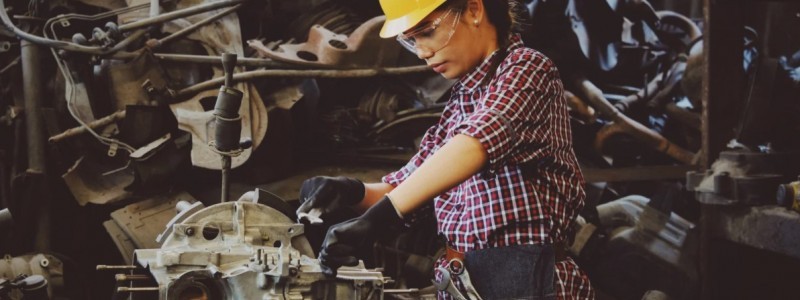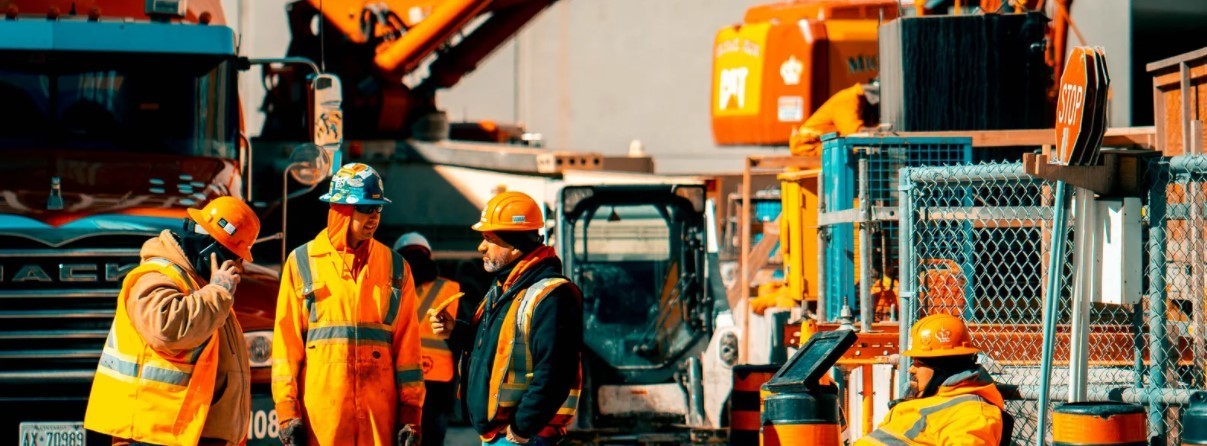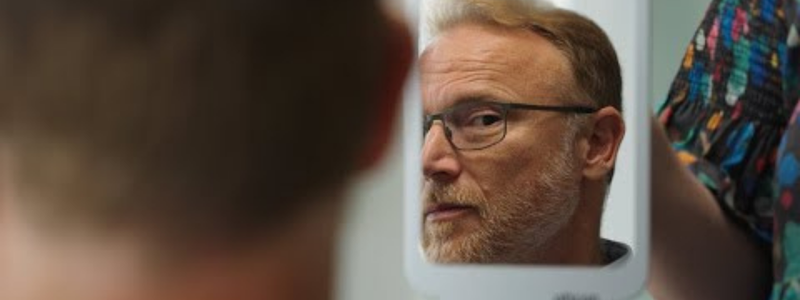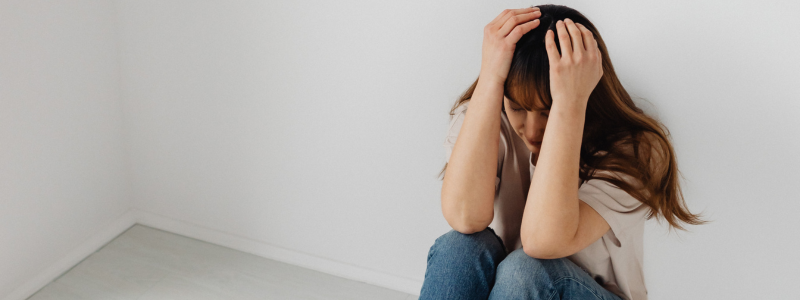
Head of Online Medical Content

Audiology Expert

Industrial Deafness Claims UK
Tips on claiming industrial deafness
How do I claim? | Government compensation | Claims procedure | Diagnosis and causes | How to calculate compensation | Signs to look out for
Last Hearing Aid UK Update:
Overview
In the UK, those with noise-induced hearing loss (NIHL) from work can claim compensation by consulting a solicitor, getting a hearing test, and proving employer negligence.
Compensation varies based on the severity of the loss, ranging from £5,000 to over £75,000. Government compensation is also available through the Industrial Injuries Disablement Benefit (IIDB). Digital hearing aids are commonly used to manage NIHL.
How do I claim compensation for noise induced hearing loss in the UK?
At the time of writing, industrial deafness awareness has been having a moment, as more and more people are recognising the signs and making the link between a loss and their existing or past work environment.
Many people in the UK are suffering from some form of industrial deafness, which is also called occupational deafness and more commonly noise-induced hearing loss (NIHL).
You can also claim if you have tinnitus as a result of negligence. This could be in result of working in sectors such as manufacturing, construction, power stations and other roles that are exposed to long periods of loud noise levels.
Related reading: Noise induced hearing loss
Industrial hearing loss government compensation
You might be one of these people who have hearing problems due to excessive noise exposure in the workforce, and you might be looking at claiming compensation.
In this article, we will briefly talk about what the general process is for claiming and how such a claim is calculated.
It is important to understand that I will be generalising here, but this content’s sole purpose is to give you a rough idea of the steps you will need to take in the UK.
The industrial deafness claims procedure
Here, we break down the industrial deafness claim process in the UK. Let’s start with the main areas of the industrial deafness claiming process. These are:
- Find a solicitor who can process your claim.
- Finding out the cause after diagnosis.
- Indicating who is liable.
Find a solicitor
There is a plethora of information you can now access online to research and find a solicitor who specialises in industrial deafness claims.
They will assist you in the legal process, give you expert advice on hearing loss compensation claims and construct your case and assist in filing an industrial deafness claim form.
Diagnosis and cause
Industrial deafness can take years to develop symptoms after the initial damage is caused. In my experience, several patients have thought that their hearing loss was due to ageing instead of noise-induced damage from their line of work.
You will need to arrange a hearing test with your local hearing healthcare provider to confirm your loss after you have spoken to your solicitor about your claim, and you have had it confirmed.
Once your hearing care professional has diagnosed industrial deafness due to work-related noise exposure, the next step is to determine who is at fault and what caused the hearing loss. For instance, exactly why you were exposed to said noise for a long period.
Examples of this could be poor or no ear protection, or a complete lack of or limited training from your employer.
Liability
So, who pays for industrial deafness claims? The final step is to indicate who is at fault regarding hearing damage and, therefore, who is liable for the claim. At the end of the day, it’s all about proving and providing evidence of who caused the loss.
For instance, are you able to provide solid evidence that your employer was negligent, as they, by law, have a duty of care? Your employer must do everything in their power to give their employees a safe working environment and ensure that they are protected against harmful levels of noise.
If the employer fails to comply with legal duties and you can prove this is the case, then you can claim compensation for your industrial deafness.

Industrial Deafness Compensation Claim
Industrial deafness and compensation legal requirements
- Installing quieter machinery.
- Implementing absorbent materials accordingly.
- Reducing or capping the length of time employees are exposed to loud sounds.
- Organising regular breaks.
- Providing PPE for all employees.
- Providing appropriate training about the risks involved.
- Providing regular hearing checks.
- Regularly check the equipment used.
Claiming industrial deafness in the UK - How can you calculate your compensation?
Calculating your compensation, if you are successful and entitled to claim, is rather complex, as there are many variants to consider.
These are how severe your hearing loss is, whether it is permanent or not, whether it is in one ear or both and how long you worked or have worked in a damaging environment.
Other additional factors might be how the loss has affected your quality of life and mental health, your ability to work and whether financially it has made a negative impact regarding seeking treatment.
Each case is different and unique from the next and depends on your circumstances alone; however, here are some estimates for your reference.
Industrial deafness compensation amounts
Wondering what the industrial deafness claim amounts are? Here are the average claims for industrial deafness in the UK:
- Mild hearing loss / inconsistent tinnitus: £5,000 - £10,000
- Deafness in both ears and/or loss of speech: £75,000 +
Signs to look out for work related hearing loss
Like I said earlier, we know that naturally, your hearing worsens over time and that sometimes noise-induced hearing loss is mistaken for age-related. However, there are a few distinct signs of noise induced hearing loss, such as:
- Misheard words in conversation.
- Losing the ability to hear conversations with background noise.
- Having to turn up the TV regularly.
- Switching on the subtitles regularly when watching TV.
- Missing out on segments of speech.
Claiming industrial deafness in the UK - How do I claim compensation?
Like with most forms of claims, there are law firms that specialise in industrial deafness compensation, and some also work on a no-win, no-fee basis. It is always worth researching to find the right representative for your case.
Alternatively, there is also industrial deafness government compensation.
You can also claim from the government and fill out an industrial deafness claim form called Industrial Injuries Disablement Benefit for occupational deafness (IIDB) form, which also includes a step-by-step guide on how to process this online.
Do hearing aids help with noise-induced hearing loss?
This form of hearing loss is permanent, and the most popular form of treatment for this is digital hearing aids. There is a hearing solution available for all hearing loss levels, lifestyles and budgets on the market today.
If you think you have noise-induced hearing loss or have completed a successful compensation claim, we can put you in touch with your local audiologist who can support, monitor and take care of your hearing healthcare going forward.
Summary
In the UK, individuals with noise-induced hearing loss (NIHL) caused by workplace exposure to loud noise can claim compensation by proving employer negligence. The process involves consulting a solicitor, getting a hearing test, identifying the cause, and establishing liability.
Compensation can range from £5,000 for mild cases to over £75,000 for severe loss, with additional support available via the government’s Industrial Injuries Disablement Benefit (IIDB).
Common industries affected include construction, manufacturing, and the power sectors. Signs of NIHL include difficulty hearing in noisy environments, frequent use of subtitles, and turning up the TV.
Legal requirements for employers include providing hearing protection, training, and regular checks. Treatment typically involves digital hearing aids, which can significantly improve the quality of life.
If you think your hearing loss may be work-related, contacting a specialist solicitor as soon as you can is often the most effective first step.
Why Choose Us?
- FREE Hearing Tests
- Best Hearing Aids and Prices
- FREE Aftercare for Life
- FREE Home Visits
- 200+ Local Audiologists
- 60 Day Money Back Guarantee
Claiming Industrial Deafness in the UK
If you've suffered hearing loss due to prolonged exposure to workplace noise, you may be eligible for compensation. To make a claim, you'll need a medical diagnosis, evidence of noise exposure, and legal advice.
A specialist solicitor can help you gather evidence, file a claim, and navigate the legal process. It's important to act promptly, as there are time limits for making a claim.
To find out more about how we can help you and your hearing or if you just need advice - call us free on 0800 567 7621
Hearing loss awareness articles you might like...
 Hearing aid stigma
Hearing aid stigma  The impact of diet on your hearing
The impact of diet on your hearing  How to tell if hearing loss is permanent or temporary
How to tell if hearing loss is permanent or temporary Our specialist service includes:
Do not spend hundreds of pounds without getting a second opinion from us.
Please call us on 0800 567 7621
 Not only are the prices great, but the service is fantastic! Many thanks to your team.
Not only are the prices great, but the service is fantastic! Many thanks to your team.Watch the NHS video on noise induced hearing loss below
What's included in our hearing aid prices?
Other pages you might find useful
Common FAQs about hearing aids and hearing loss
In general, any audiologist will always recommend to you the hearing aid model that best suits your needs. Here is a useful checklist to make sure that is the case.
- Audiologist's level of knowledge: The audiologist you have seen will hopefully have a wide knowledge of all available hearing aids; however, some will only be familiar with a small number of brands and, therefore, may not really be in a position to know which model is the best for you. It is OK to challenge their recommendation and ask them to justify why this particular brand is the one for you.
- Do research: Read about the hearing aid that was recommended. Does it seem like it will suit your lifestyle? Does it have more or fewer features than you need?
- Be aware of sales targets: Many high street retailers have specific tie-ins to a particular manufacturer/brand. The hearing aid they have suggested may still be the correct one for you, but do your research so that you know why they might have recommended it.
If you have significant hearing loss in both ears, you should be wearing two hearing aids. Here are the audiological reasons why:
Localisation: The brain decodes information from both ears and compares and contrasts them. By analysing the minuscule time delays as well as the difference in the loudness of each sound reaching the ears, the person is able to accurately locate a sound source.
Simply put, if you have better hearing on one side than the other, you can't accurately tell what direction sounds are coming from.
Less amplification is required: A phenomenon known as “binaural summation” means that the hearing aids can be set at a lower and more natural volume setting than if you wore only one hearing aid.
Head shadow effect: High frequencies, the part of your hearing that gives clarity and meaning to speech sounds, cannot bend around your head. Only low frequencies can. Therefore, if someone is talking on your unaided side, you are likely to hear that they are speaking, but be unable to tell what they have said.
Noise reduction: The brain has its own built-in noise reduction, which is only really effective when it is receiving information from both ears. If only one ear is aided, even with the best hearing aid in the world, it will be difficult for you to hear in background noise as your brain is trying to retain all of the sounds (including background noise) rather than filtering them out.
Sound quality: We are designed to hear in stereo. Only hearing from one side sounds a lot less natural to us.
Fancy some further reading on this topic? You can read about why two hearing aids are better than one in our article, hearing aids for Both Ears, here
For most people, the main benefit of a rechargeable hearing aid is simple convenience. We are used to plugging in our phones and other devices overnight for them to charge up. Here are some other pros and cons:
For anybody with poor dexterity or issues with their fingers, having a rechargeable aid makes a huge difference, as normal hearing aid batteries are quite small and some people find them fiddly to change.
One downside is that if you forget to charge your hearing aid, then it is a problem that can't be instantly fixed. For most, a 30-minute charge will get you at least two or three hours of hearing, but if you are the type of person who is likely to forget to plug them in regularly, then you're probably better off with standard batteries.
Rechargeable aids are also a little bit bigger and are only available in Behind-the-Ear models.
Finally, just like with a mobile phone, the amount of charge you get on day one is not going to be the same as you get a few years down the line. Be sure to ask what the policy is with the manufacturer's warranty when it comes to replacing the battery.
For most people, the answer is yes. But it's never that simple.
The majority of hearing problems affect the high frequencies a lot more than the low ones. Therefore, open fitting hearing aids sound a lot more natural and ones that block your ears up can make your own voice sound like you are talking with your head in a bucket. Therefore, in-ear aids tend to be less natural.
However, the true answer is we can't tell until we have had a look in your ears to assess the size of your ear canal, and until we have tested your hearing to see which frequencies are being affected.
People with wider ear canals tend to have more flexibility, also there are open fitting modular CIC hearing aids now that do not block your ears.
There is also the age-old rule to consider, that a hearing aid will not help you if it's sat in the drawer gathering dust. If the only hearing aid you would be happy wearing is one that people can't see, then that's what you should get.
Most people can adapt to any type of hearing aid, as long as they know what to expect. Have an honest conversation with your audiologist as to what your needs are.
Generally speaking, six or more. Unless it's none at all. The number of channels a hearing aid has is often a simplistic way an audiologist will use to explain why one hearing aid is better than another, but channels are complex, and it is really not that straightforward. Here are some reasons why:
Hearing aids amplify sounds of different frequencies by different amounts. Most people have lost more high frequencies than low, and therefore need more amplification in the high frequencies. The range of sounds you hear is split into frequency bands or channels, and the hearing aids are set to provide the right amount of hearing at each frequency level.
Less than six channels, and this cannot be done with much accuracy, so six is the magic number. However, a six-channel aid is typically very basic with few other features and is suitable only for hearing a single speaker in a quiet room. The number of channels is not what you should be looking at; it's more the rest of the technology that comes with them.
As a final note, different manufacturers have different approaches. One method is not necessarily better than any other. For example, some manufacturers have as many as 64 channels in their top aids. Most tend to have between 17 and 20. One manufacturer has no channels at all.
Manufacturer's warranties typically last between 2-5 years, depending on the brand and model, and cover defects in materials and workmanship. This includes repairs for component failures, electronic malfunctions, and manufacturing defects, but excludes damage from misuse, accidents, or normal wear. Most manufacturers also include loss and damage insurance for the first year.
We handle all warranty claims on your behalf, liaising with manufacturers and ensuring you get replacement devices quickly when needed. This comprehensive warranty coverage, combined with our lifetime aftercare, gives you complete peace of mind.
Our hearing tests are completely free, whether at our clinics or in your home. Unlike other providers who charge £30-£100 for home visits, we believe hearing healthcare should be accessible without financial barriers. Our comprehensive assessments include examination by a registered audiologist, audiogram results, and personalised recommendations.
All testing, future adjustments, and ongoing support are included at no extra cost. While NHS tests are also free, typical 6-week waiting periods often lead people to seek immediate private testing. We provide prompt, professional assessments that fit your schedule and budget.
Yes, we offer completely free home visits throughout the UK, and this service is included in our prices with no additional charges. Home visits are particularly valuable for people with mobility issues, busy schedules, or those who simply prefer the comfort and convenience of their own environment.
Our audiologists can conduct full hearing tests, fit hearing aids, and provide ongoing support in your home. This service sets us apart from many providers who either don't offer home visits or charge extra for them.
We can offer prices up to 40% lower than high street retailers because of our business model. As a network of 200+ independent audiologists, we don't have the massive overheads of large retail chains - no expensive high street premises, no sales targets pushing audiologists to sell the most expensive options, and no costly marketing campaigns.
However, we maintain the same buying power as the big chains because we purchase on behalf of our entire nationwide network. This means you get access to the same premium hearing aids with professional service, but at genuinely competitive prices.
We offer a comprehensive 60-day money-back guarantee, which gives you twice the industry standard time to properly assess whether your hearing aids are right for you. This extended period recognises that adjusting to hearing aids takes time, and your brain needs several weeks to adapt to the amplified sounds.
Unlike many providers who offer just 30 days, we believe 60 days gives you the confidence to test your hearing aids in all the situations that matter to you - from quiet conversations at home to busy restaurants and outdoor activities.
Ask the Experts
6 Morton Lane
Walkwood
Redditch
Worcestershire
B97 5QA
Latest Launch
When we refer to a product as 'Latest Launch', we mean it is the latest to be released on the market.
New
When we refer to a product as 'New', we mean that the product is the newest hearing aid model on the market.
When we refer to a product as 'Superseded', we mean that there is a newer range available which replaces and improves on this product.
Older Model
When we refer to a product as an 'Older Model', we mean that it is has been superseded by at least two more recent hearing aid ranges.
